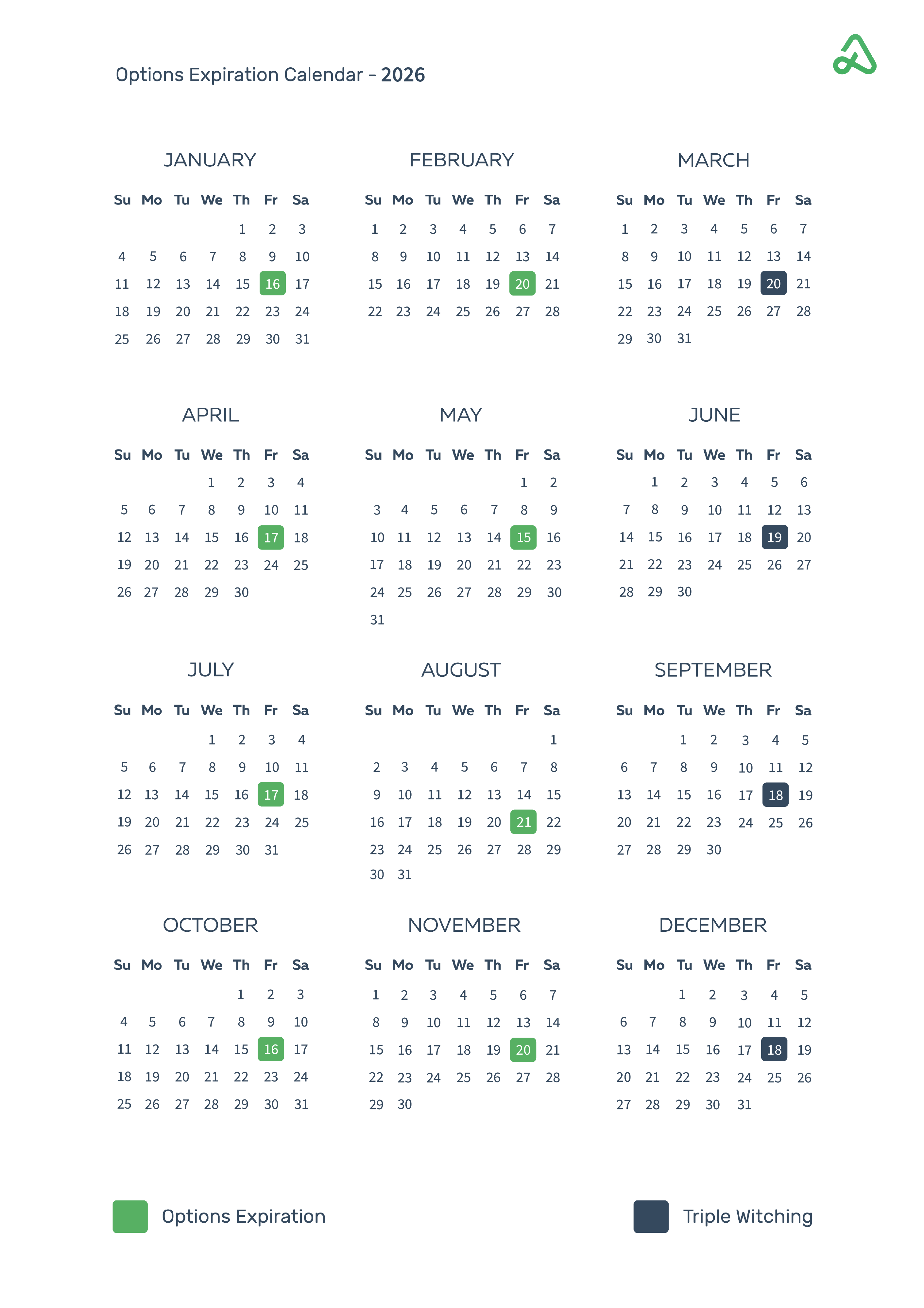Quadruple witching day occurs when multiple contracts have their quarterly expiration. The contracts are:
- Stock options
- Index options
- Index futures
- Single stock futures
Quad witching happens four times a year on the third Friday of March, June, September and December. This can cause high volatility in the markets as traders unwind their positions to take profits, limit losses, or roll positions to the next expiration.
The expiration of these derivative contracts affects both institutional and retail investors who are actively trading in the underlying instruments. Quadruple witching days bring increased volume and liquidity into the markets which can result in large price swings and market volatiltiy. Investors should take caution when trading on quadruple witching days as significant price changes can happen quickly.
Quadruple Witching Dates 2026 Calendar
Quadruple witching occurs on the third Friday of March, June, September and December. These are referred to as “quadruple witching days” because four major derivatives contracts expire simultaneously.

Is Quadruple Witching Bullish or Bearish?
Quadruple witching does not have a quantifiable bullish or bearish bias. Instead, the event is largely a function of speculation and investor sentiment. When quadruple witching occurs, traders should expect increased volatility and manage their positions accordingly. The resulting market swings could be bullish or bearish depending on how investors interpret the situation.
Traders who expect a sharp rise in volatility during quadruple witching may decide to buy options, anticipating that prices will rise due to increased extrinsic value. Long options strategies such as long straddles and long strangles have no directional bias, and may profit form a large move either direction. Conversely, investors anticipating a decrease in volatility after the event may opt for short straddle or short strangle positions to capitalize on IV crush.
It is important to note that predicting price movements during quadruple witching can be difficult because of its unpredictable nature. Ultimately, whether you should enter a long or short position depends on your outlook for the markets and how you expect them to react when faced with high levels of options expirations.







